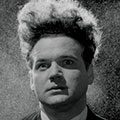4am starts are not my idea of a good time, but on Tuesday we dragged ourselves out of bed at an ungodly hour to travel to Ballarat and conduct one of our primary interviews for She Drives, with a veteran taxi driver named Elizabeth. In our pitch for this project we had the idea to code each of our interviews visually through time of day, and in order to get some morning light for our taxi driver segment we had to start travelling as early as possible. We missed the actual sunrise itself because by the time the sun rose it was completely overcast, but after about an hour the clouds dissipated and we got some really beautiful landscape shots from the window of our V/Line train:
This is exactly what we were hoping for, and it felt great to know that the early start was totally worth it.
Elizabeth was a wonderful subject, very accommodating of our endless requests (driving her taxi, standing in front of her taxi, getting in and out of her taxi…) and happy to answer all of our questions. What surprised me, though, was that she was adamant that she’d never really been treated differently because she’s a woman. She seemed very modest about her experiences, never said she felt threatened or disrespected, and was almost trying to “sell” taxi driving as a safe and viable profession for women, which makes sense since she’s in the business herself. But it kind of flies in the face of what our original pitch was — we were expecting to find people who could speak about the flaws and dangers of professional driving. Eventually I think she let her guard down and let slip about a couple of instances where she was discounted or dismissed because of her gender, but they came right at the end of the interview and I was honestly worried that we’d have barely any usable interview footage.
Obviously with a university project we have set deadlines that can’t be changed, but I think on future projects it would be a good idea to pre-interview each of our subjects so we know what they’re going to say before we hit record. Firstly, it will help us select the right subjects, since there’s no reason to talk to someone who’s not going to talk about what you want them to, but also because once you know what someone is going to say you can then start planning and editing in your head. Now that we’ve spoken to Elizabeth we can re-order what she said to fit our structure, but if we’d pre-interviewed her beforehand we could have gone into the interview already armed with that information, which might have helped hone and refine our questions so that we didn’t waste any time on questions we wouldn’t use.

